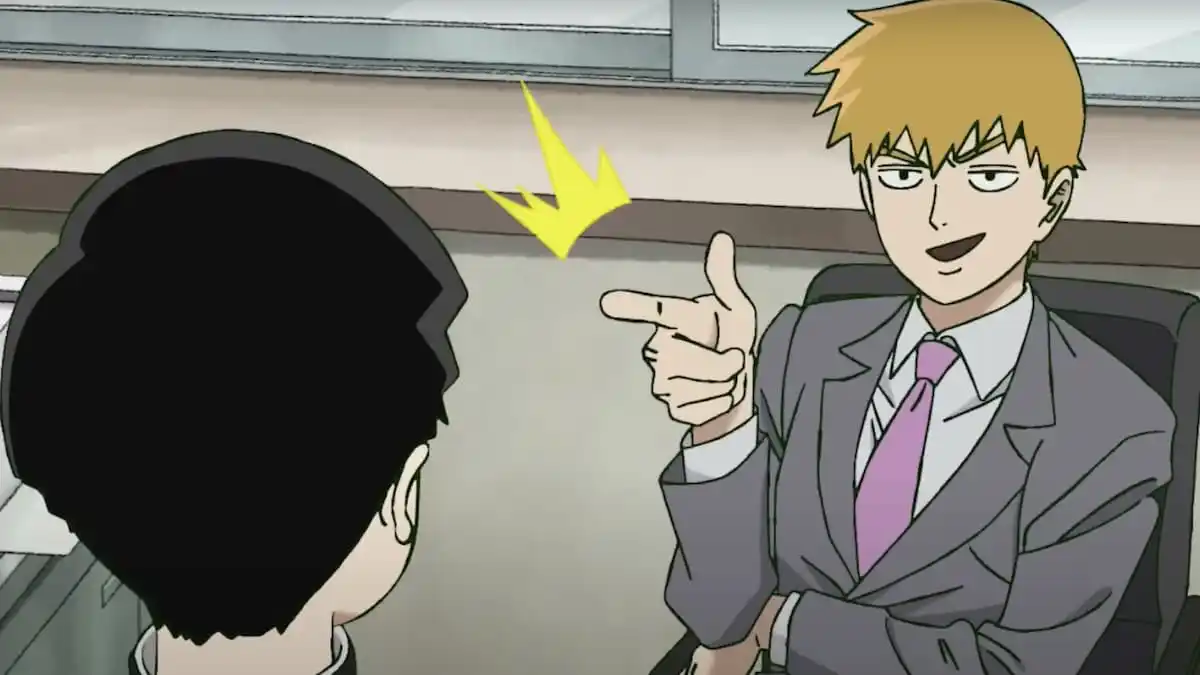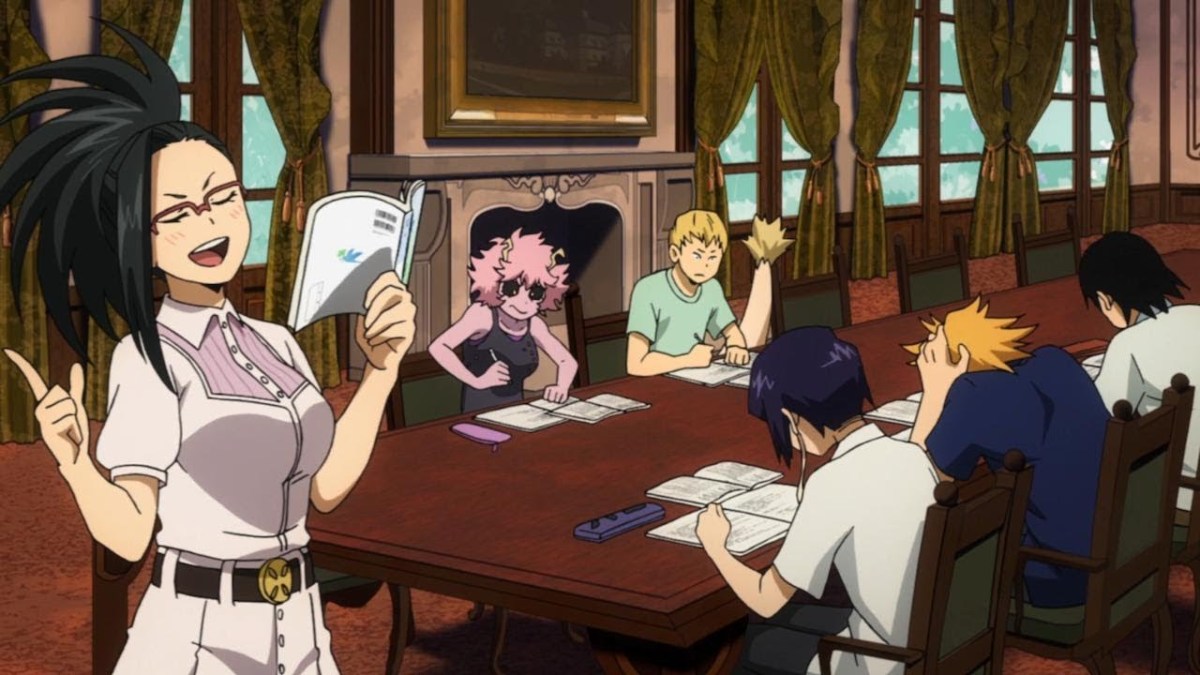If you watch anime with subtitles, you’re bound to hear a couple of key Japanese phrases repeated across multiple shows. You definitely can’t learn Japanese from anime alone—especially since “anime Japanese” and “real life Japanese” are often very different—but it’s still a fun way to pick up some basic vocabulary. Or some highly specific vocabulary (if anyone needs to talk about pirates, I am ready). I’ve already written a whole article on one of the best “Anime Japanese” words, baka. But here’s a list of some quintessential phrases you’ll hear over and over again in anime—and which might actually serve you well in Japan.
Before we dive in, I want to quickly note that each Japanese verb has a “dictionary form” and a polite form. There’s also keigo, another form of ultra-polite Japanese for the service industry that we’re definitely not going into here. Still, since the Japanese language and Japanese culture itself places a lot of emphasis on politeness, be ready for a lot of these phrases to have casual and polite versions. And keep in mind, anime typically goes for the casual versions.
Itadakimasu!
I’m going to start with my personal favorite, because I can. In anime, when a character sits down to a meal, or the most beautiful goddamn bowl of udon you’ve ever seen is slid in front of them, something almost always happens. They’ll clap their hands together and, palms frozen mid-air, shout, “Itadakimaaaaasu!,” before digging in. This is a near-ubiquitous action before meals in Japan, though many prefer their “Itadakimasu!” to be quick and quiet. But saying “Itadakimasu!” before a meal is incredibly common.
“Itadakimasu,” at face value, literally translates to “I humbly receive [this thing].” In the mealtime context, it retrains that nuance of gratefulness, while also adding a “let’s eat!” vibe. By the way, after the meal, it’s common to say, “Ogochisousama deshita.” The phrase functionally means, “Thank you for the meal,” but could literally translate to “You were / I was the feast person,” which I love very much.
Ohayou gozaimasu / Konbanwa
One of the most notorious Japanese words is konnichiwa, which is usually translated as “hello.” This is, however, only partially correct—a more specific translation of konnichiwa would be “good afternoon.” For the other times of day, you have other greetings. “Good morning” is “ohayou” or the more polite “ohayou gozaimasu.” When I took Japanese in high school, my sensei had us watch Big Bird in Japan, in which a bewildered Big Bird wonders why everyone he meets is from Ohio. (I was going to link to the clip, but it’s not not cringe-y.)
Anyway. For “good evening,” switch out nichi (day) for ban (night), and you get “konbanwa.” At the end of the night, you can say “good night” with “oyasumi” or — again, more polite — “oyasumi nasai.”

Itte kimasu! / Tadaima! / etc.
Perhaps you remember the first-ever Netflix original anime series, Knights of Sedonia. The first season was intriguing, but the second, I’m sorry to say, was baffling hot garbage (at least in my recollection). The part of the series forever burned into my brain, though, involved all the main characters getting a house together. They don’t really do much in this time except leave the house and come back. The upside is that I will never, ever forget Japanese vocabulary around leaving home.
The person leaving home will shout “Itte kimasu!” as they’re heading out the door, which means “I’ll go and come back!” Anyone still home will reply, “Itte raishai!,” which literally translates to “Please go and come back!” but has the vibe of “Have a nice day!” or “Be safe out there!.” When the leaver returns, they’ll shout, “Tadaima!” to say “I’m home!” (it can also mean “Here I am!”). This will be received by either “Okaeri!” or the more polite “Okaerinasai!,” both of which mean, “Welcome home!” (Kaeri means “return” and is taken from the verb kaeru, which specifically means “to go/come home.”)
Sugoi
Sugoi is a handy adjective that means “incredible,” “awesome,” “amazing,” etc. When my band toured Japan in 2019, one of the few words my partner knew was “sugoi.” So he would go up to all the other bands, saying “sugoi!” very empathetically, and often more than once, to show his appreciation. Everyone was lovely, and there are so many underground Japanese bands that are indeed sugoi. (Sugoi is in the present tense, by the way—the past tense is sugokatta.)
Anime fans might be more familiar with the more casual, more masculine-feeling version, “suge!,” which is used by one Straw Hat Luffy aaaaaaaall the time. Because “sugoi” means “incredible,” it can also be used to mean “formidable” or “dreadful,” depending on what it is describing. For example, you could say, “Kaido wa sugoi chikara ga aru,” which would mean, “Kaido has incredible/dreadful power.”

Hai / Chigau
Hai is often translated as “yes,” but it’s much more flexible than a simple “yes” or “sure.” In anime, you’ll often see “hai” used as a way to confirm that you’ve received an order from your superior. If there’s a roll call, you’ll hear “hai!” instead of “here!.” “Un” is a more casual way of saying “yes”—kind of like “yeah” or “yup.”
Saying “no” is a little less straightforward, because, remember, the Japanese language emphasizes politeness, which often means indirectness. A simple “no,” though, is “iie.” You’ll also hear anime characters say “chigau” or (more polite) “chigaimasu.” But since chigau literally means “to differ,” those phrases translate more to “You’re wrong!” or “You’ve got the wrong idea!”
Nani?
The go-to word of the befuddled, “nani?” simply means “what?,” or if the circumstance allows, “What’s that?” Just “nani” can also function like “huh?.” However, “nani” reads as rather casual. If you want to be more polite about your inquisition, you can say “Nan desu ka?,” which errs more towards the “what’s that?” meaning.

E? / E——?!!
My other favorite word. E is just one letter: え. Although, if the situation warrants, you’ll see a whole battalion of them strung together on a comment thread: “えええええええええええええええええ?!!!!” You can drag it out verbally, too. One time, I was in the back of my host family’s car listening to Japanese radio, and could make no sense of what was happening, but all of a sudden, a choir of women burst forth simultaneously: “えええええええええええええええええええええええええええ?!?!?!?!” You hear it in game/reality shows (keep tabs on the reaction audience in Old Enough!) even more than anime, and it’s very quintessentially Japanese. There’s no equivalent word in English, and I might honestly nominate E for Best Word of Any Language.
E is kind of like ultra-nani. It can mean “what?” or “huh?,” similar to nani, but it also has the ability to be very reactive. It’s super useful for communicating surprise and can mean anything from “whoa!” to “what the hell?!.” For example: “I adopted a kitten this morning!” could be received immediately with “え!,” meaning, “Wow! Good for you!” Or screaming, “We can’t get out of this hole and the walls just starting closing in on us!” could warrant a long, bewildered, “えええええええ?!?!?” Sometimes, it’s simply a good way to communicate that you’re still paying attention in a two-person conversation.
(featured image credit: Bones)









